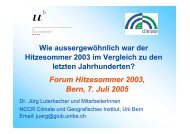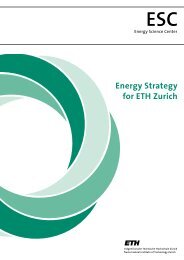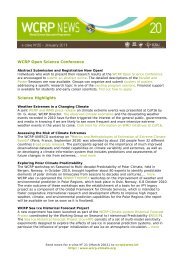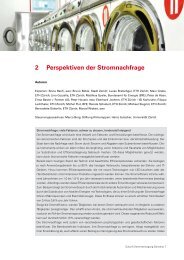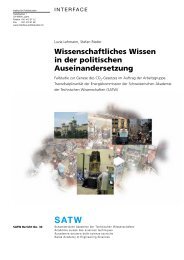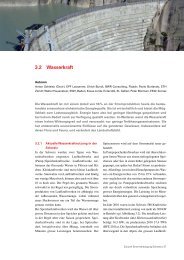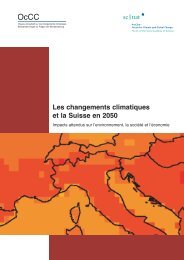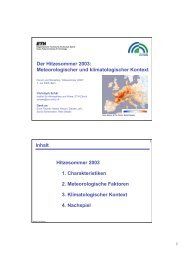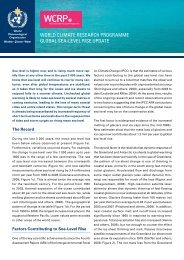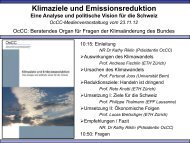Powering Europe - European Wind Energy Association
Powering Europe - European Wind Energy Association
Powering Europe - European Wind Energy Association
You also want an ePaper? Increase the reach of your titles
YUMPU automatically turns print PDFs into web optimized ePapers that Google loves.
• <strong>Wind</strong> power support schemes are different in the various<br />
Member States: feed-in tariffs are most common,<br />
followed by green certificates and premium systems.<br />
However, substantial differences exist as to how the<br />
types of support schemes are used by individual Member<br />
States, such as feed-in tariffs, premium mechanisms,<br />
tenders or green certificate schemes.<br />
• In most countries wind power is prioritised in dispatch.<br />
Only in a few countries (Denmark and Finland)<br />
is balancing the responsibility of the generation<br />
plant owners.<br />
• In most countries, wind power is not penalised if the<br />
forecasted production is not fulfilled, but exceptions<br />
do exist.<br />
• Explicit auctioning is the most common way of allocating<br />
cross-border capacities (yearly, monthly,<br />
daily). Day-ahead market couplings exist in the Nordic<br />
countries, between the Netherlands, Belgium<br />
and France, and internally in Italy. It was decided in<br />
June 2010 to establish an intraday market coupling<br />
between the Netherlands, Belgium and the Nordic<br />
countries, operational as of November 2010.<br />
4.2 Economic benefits of proper<br />
market rules for wind power<br />
integration in <strong>Europe</strong><br />
The mechanisms that governed the power market in<br />
the past have created barriers for the large-scale implementation<br />
of variable renewables in general and<br />
wind power in particular. The ongoing market reform<br />
processes at <strong>Europe</strong>an level present an opportunity to<br />
develop and introduce market mechanisms and rules<br />
chApTEr 5 electrIcItymarketDeSIgN<br />
that take into account the specific properties of variable<br />
renewables. Different market scenarios have been<br />
analysed in the Trade<strong>Wind</strong> project [Trade<strong>Wind</strong>, 2009]<br />
on their benefits for the integration of wind power. The<br />
scenarios were characterised by two dimensions:<br />
• Time constant of the market (flexibility).<br />
• Geographical size (degree and flexibility of cross<br />
border exchange) of the market area.<br />
Looking ahead to the 2020 and 2030 scenarios<br />
(Chapter 4), the macro-economic benefits of a properly<br />
functioning market in electricity are:<br />
• Intra-day rescheduling of generators and the application<br />
of intra-day wind power forecasting reduces<br />
reserve requirements and results in savings in the<br />
order of €250 million per year.<br />
• Intraday rescheduling of power exchange (international<br />
trade) leads to low system costs and stable<br />
prices, resulting in savings of €1-2 billion per year.<br />
The availability of network infrastructure to assist the<br />
developing internal market is vital. The availability of<br />
sufficient interconnection capacity to enable prices to<br />
converge, results in savings in the order of €1.5 billion<br />
per year for Trade<strong>Wind</strong>’s 2030 scenario.<br />
<strong>Wind</strong> power curtailment and load shedding would not<br />
exist if the market were well designed. An international<br />
exchange of reserves is not the first market design<br />
priority because the need for reserve power would be<br />
kept low if intra-day rescheduling of power exchange<br />
and by intra-day rescheduling of unit commitment and<br />
dispatch of units were effective. The main benefit of<br />
exchanging reserve power could consist of possible<br />
investments savings in flexible power plants due to reserves<br />
being shared across borders.<br />
127




